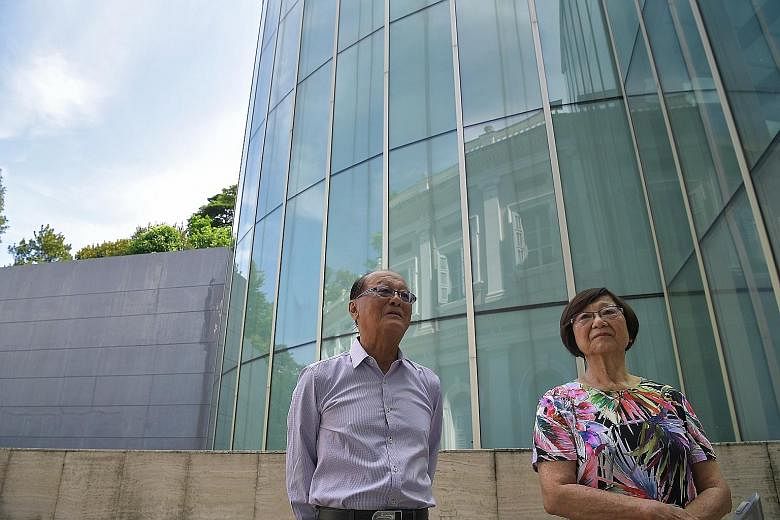While organising anti-Japanese efforts and attempting to evade the Japanese during World War II, Singapore war hero Lim Bo Seng was also missing his seven children.
They each had a special trait, as recorded in his personal diary that will be on display for the first time at the National Museum of Singapore's international exhibition, Witness To War: Remembering 1942, opening next month.
A video interview of Dr Lim Whye Geok, 80, and Mrs Leow Oon Geok, 86, two of Mr Lim's seven children, will also feature in the exhibition.
The heroics of Mr Lim's public life have been studied in his war diaries, but his personal diary reveals his love for his family.
Last week, The Straits Times sat down with Dr Lim and Mrs Leow, remembered as the "mischievous one" and the "piano one", respectively, to discuss the diary.
Dr Lim, who is the fifth child, laughs as he explains his nickname: "For taking things apart, the clocks and toys, and then not knowing how to put them back together, and hiding under the bed when (father) came home."
-
VIEW IT / WITNESS TO WAR: REMEMBERING 1942
-
WHERE: National Museum of Singapore, 93 Stamford Road
WHEN: Sept 23 to March 25 next year , 10am to 7pm daily
ADMISSION: Free for Singapore citizens and permanent residents
INFO: The exhibition will explore the events that led to the fall of Singapore in World War II. It will feature more than 130 artefacts, including those from 10 overseas museums
While Mrs Leow read the diary as a teenager, Dr Lim is unsure why he found out about its existence only "10 to 15 years ago". He read it cover to cover in one sitting.
"I was really quite moved. You can't quite help but be moved. (Especially by) his description of the family and how much he misses us.
"Whenever he comes across children or remembers a song, he would think about us and he says, 'How I wish they were all with me,'" says Dr Lim.
Mrs Leow, the eldest of Mr Lim's children, agreed. "I felt very touched and even now, when I talk about him, I feel very emotional.
"He loved children. He made me learn to play the piano and my brother the violin, so he would always ask us to perform."
During the Japanese Occupation, their mother, Ms Gan Choo Neo, was left to care for the seven children and moved from house to house to evade the Japanese, who were looking for them because of Mr Lim's involvement in antiJapanese activities.
At the time, Mrs Leow was 11, Dr Lim, five, and their youngest sibling, Ms Lim Leng Geok, an infant.
Dr Lim says: "We didn't want to stay with my father's side of the family because when the Japanese first came, they went to the family house to look for my father.
"They couldn't find him and they took away eight young men from our extended family. We never saw them again."
Yet, the siblings do not harbour any ill feelings towards the Japanese today, attributing it to time helping the family to recover.
In fact, when they moved into their grandfather's home in Upper Serangoon Road towards the end of the Occupation, they were shocked to learn the Japanese had established camp within the compound.
Dr Lim, who was even invited to lunch with the Japanese soldiers in their quarters, recalls: "There were hundreds of Japanese soldiers there every day. They were very playful, racing away, piggy-backing us and everything. They didn't know who we were."
Today, while Singaporeans remember their father's strength and resilience, the children will never forget their mother's as well.
She battled dysentery while caring for the children, and was bereft after receiving news about her husband's death after the war in 1945. Mr Lim had been caught and tortured by the Japanese and died in June 1944.
Dr Lim says: "Throughout the weeks of the funeral, she lost so much weight. She was crying everyday and very despondent."
In Mr Lim's last entry, Mrs Leow recalls: "He never thought that when he left, it was going to be eternal, that he would never see my mother again. But he said that he had faith that my mother would bring us up well and also tell us about him."


